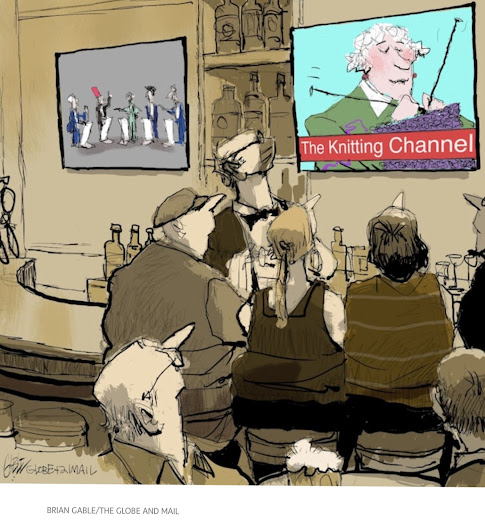We are experiencing a cold spell here in Victoria. Recently, I read that the temperature was going down to minus 20. It wasn’t, of course. It was going down to something like minus 8, but with a strong wind…. Oh no, I thought. The Winnipeg Wind Chill Factor Omission has reached the west coast.
When I arrived in Winnipeg in 1970, degrees Fahrenheit were being replaced by degrees Celsius. One New Year’s Eve the temperature went down to minus 41. Fahrenheit or Celsius, I forget which, but it didn’t matter, for they crossed over at minus 40. Forty below was minus 40. Along with the temperature came the wind chill factor, as a warning, for you would be frost-bitten much sooner in the wind. The temperature is minus 40, we were told — minus 45 with the wind chill factor.
And then, for some reason, perhaps in the late seventies or eighties, the wind chill was no longer expressed as a temperature, but a four digit number, something to do with joules. Nobody knew what it meant, but 2,000 and above was bad. It was serious brass-monkey weather.
There was a certain logic in expressing the wind chill as an independent number rather than a temperature. It may be minus 45 outside with the wind chill factor, but who is standing in the wind? And how much wind? In reality, the temperature with the wind chill factor varies for every individual, depending on the exposure. So it made sense to do away with “minus 45 with the wind chill factor”.
But because nobody knew what the four-digit number meant, and because Winnipeggers liked to brag about how cold it was, and the lower the temperature the better, the old system of measuring the wind chill factor returned. Once again, people would say, “It’s bloody cold: minus 25, minus 40 with the wind chill factor."
And then something happened.
Minus 25, minus 40 with the wind chill factor,
evolved into
Minus 25. Minus 40 (pause) with the wind chill factor,
and then simply,
Minus 40.
Suddenly, the temperature was lower than ever!
I suppose if you live in the coldest place on earth, you have to make a virtue out of necessity. You have to enjoy it. Instead of somehow easing the pain by saying, “It’s a dry cold”, you can embrace it, and say to other Canadians,
It’s minus 40 here in Winnipeg!
You may have travelled from your garage in your heated car to heated underground parking, without venturing outside at all, and you certainly didn’t experience the wind chill, and the temperature isn’t really minus 40, but no matter,
It’s minus 40 here in Winnipeg!






